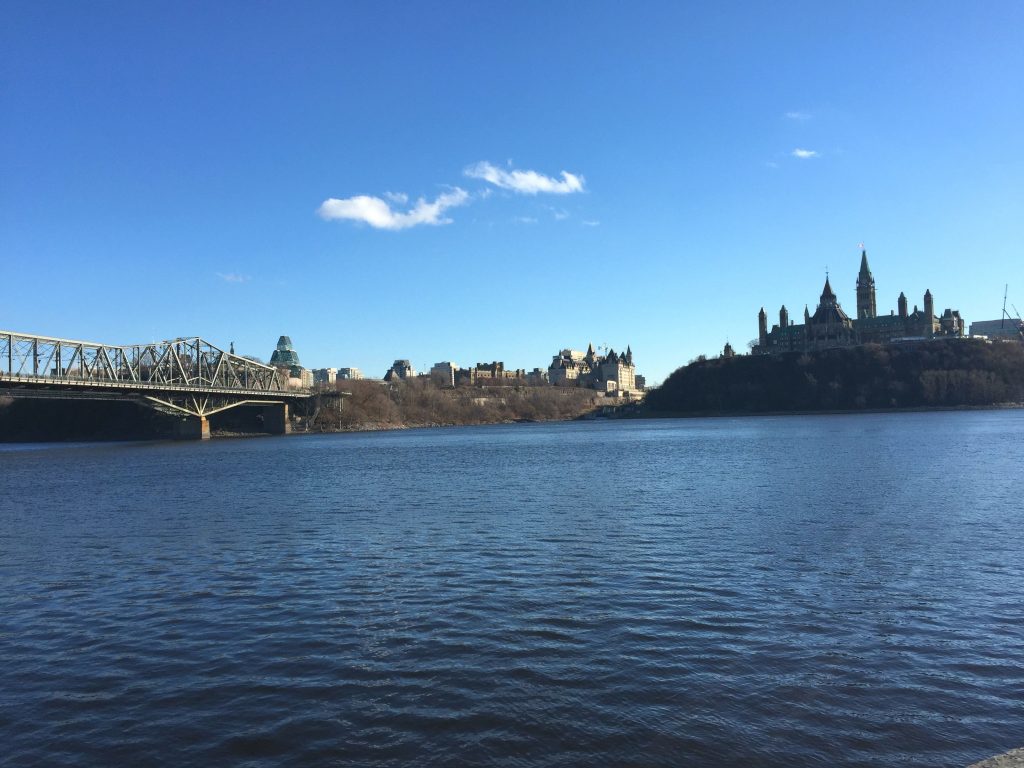Riverkeeper seeks instant sewer overflow alerts
By Taylor Retter
An Ottawa Riverkeeper letter writing campaign for a cleaner, safer Ottawa River has drawn support frommore 3,000 concerned citizens.
The goal of the environmental group’s #WeWantToKnow campaign is to encourage the municipal governments of Ottawa and Gatineau to give citizens real-time updates when sewage overflows wash into the river.
Sewage pollution in the river can cause flu-like symptoms to those who are exposed to it, said Riverkeeper activist Emma Konrad.
“The accumulation of trash from unfiltered sewage like tampon applicators and condoms, as well as untreated medication that some people will flush down the toilet, can adversely affect wildlife,” Konrad said.
Currently, the City of Ottawa reports sewage overflows 24-48 hours after they occur, whereas Gatineau does not report them at all. The sewage spills into the river occur whenever heavy rains overwhelm the stormwater drainage system.
Konrad argues that the current alert system is ineffective because the flow rate of the river means that within 24-48 hours of overflow events the pollution has already moved downstream and away from Ottawa and Gatineau residents.
“Ottawa has someone looking into the issue, and we are optimistic that Gatineau won’t be far behind with changes to their infrasctrure,” she said.
Combined sewer outlets (CSOs) are sewer systems that are designed to collect rainwater runoff, domestic sewage, and industrial wastewater in the same pipe to try to prevent overflow.
“In Ottawa, there is an automatic sensor that detects when an area is close to flooding and will direct sewage to other CSOs,” Konrad said.
The Combined Sewer Storage Tunnel (CSST), slated to become operational in 2020, is one of the major project of the ongoing Ottawa River Action Plan and is intended to dramatically reduce the frequency and volume of sewage overflows.
Livia Belcea, a spokesperson for Ottawa Mayor Jim Watson, said that the ORAP is a “complex, multi-project, long-term priority for the City of Ottawa that aims at protecting one of our most precious resources: the Ottawa River.”
She adds that while the CSST is designed to prevent wastewater from polluting the river, there will be projects such as public education and outreach that continue indefinitely.
According to the Riverkeeper, the City of Ottawa had recorded 33 sewage overflows in 2017 up until September.
“It takes a watershed to protect a river,” writes Meredith Brown, the Riverkeeper, on the Ottawa Riverkeeper website.
A recent press release from Watson stated that the first phases of the ORAP led to an 80-per-cent reduction in the number of sewer overflows.
It also says that in 2016, more than 205 million litres of untreated waste and wastewater were dumped into the river.
The Riverkeeper said it is hopeful that the additional CSSTs will almost eliminate overflows of untreated wastewater on the Ottawa side of the river.
Until then, Konrad said, the group will continue to press municipal governments to release real-time updates when sewage spills into the river, allowing residents to make informed choices in a timely manner.

